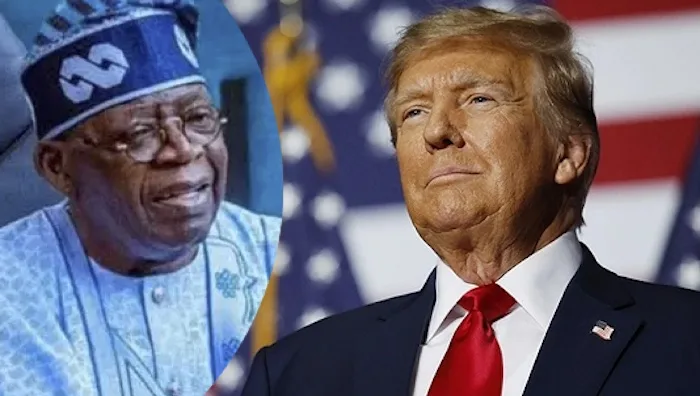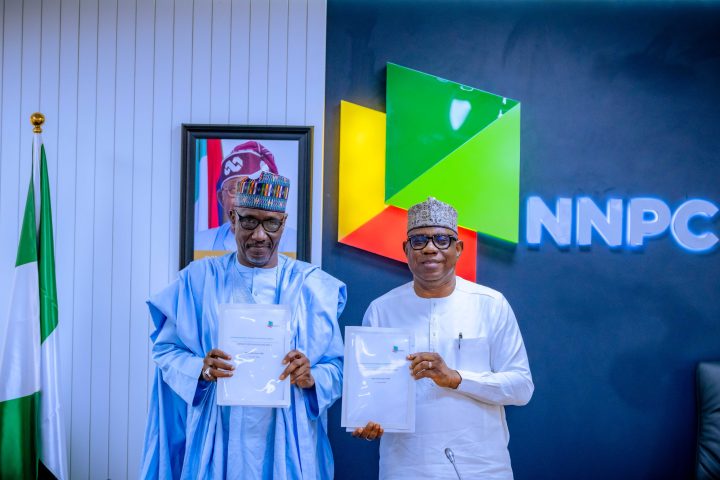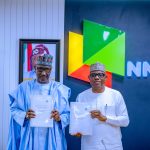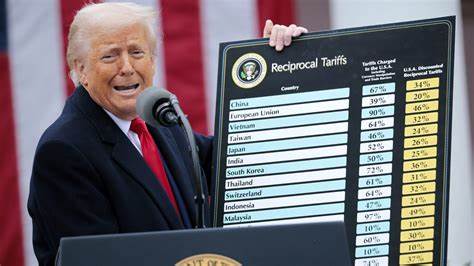The Nigerian Economic Summit Group (NESG) has warned that Donald Trump’s tax reforms could reduce Foreign Direct Investment (FDI) in Nigeria. According to a report titled Trump’s Policy Playbook: Strategic Implications for Nigeria, released in February 2025, the NESG noted that Trump’s tax policies could encourage U.S. firms to withdraw investments from Nigeria.
The report explains that Trump’s tax reforms offer incentives for U.S. companies to repatriate funds, leading to a decline in capital inflows into Nigeria. NESG stated, “Trump’s tax reforms may encourage U.S. firms to repatriate investments, reducing FDI in Nigeria. To counter this, Nigeria should attract investors from China, the EU, and Gulf nations by improving its investment climate.”
Join our WhatsApp ChannelEffects of Trump’s Tax Reforms on FDI
The NESG emphasised that the tax changes in the U.S. could make it more attractive for American businesses to keep their investments at home. This shift could slow down the flow of foreign capital into Nigeria, affecting sectors that depend on U.S. investment.
READ ALSO: Why Tax Reform Bills Must Be Passed – Experts
Experts suggest that this could have a major impact on Nigeria’s economic growth, as FDI plays a crucial role in infrastructure development, job creation, and technology transfer. If U.S. companies choose to reinvest domestically rather than abroad, Nigeria could face a slowdown in economic activities that rely on foreign investments.
Trade Challenges and the AGOA Uncertainty
Beyond tax reforms, NESG warned that Nigeria could experience trade disruptions due to Trump’s protectionist policies. The report highlights concerns over potential tariff hikes on key commodities, which could alter global supply chains and affect Nigeria’s trade relations with the U.S.
The future of the African Growth and Opportunity Act (AGOA), which is set to expire in September 2025, also remains uncertain. The NESG noted that Trump’s policies during his first term showed little focus on Africa. If AGOA is renegotiated or its benefits reduced, Nigeria’s trade with the U.S. could decline.
The report stated, “The U.S. remains one of Nigeria’s top five export destinations for oil and agricultural products. If AGOA expires or is modified unfavourably, Nigerian exporters could face stricter trade policies, leading to revenue losses.”
Industries such as oil, cocoa, and textiles, which rely on the U.S. market, may be the hardest hit if tariff hikes or trade restrictions are implemented.
Strategic Recommendations for Nigeria
To reduce the risks posed by Trump’s tax reforms and trade policies, the NESG suggests that Nigeria should diversify its trade and investment sources. Strengthening ties with China, the European Union, and Gulf nations could help mitigate the impact of reduced FDI from the U.S.
The NESG also advises Nigeria to improve its investment climate by creating policies that attract foreign investors. Enhancing local manufacturing and encouraging intra-African trade through the African Continental Free Trade Area (AfCFTA) could serve as a buffer against economic shocks.
“With global trade dynamics shifting, Nigeria must position itself strategically to navigate uncertainties and sustain economic growth,” the report states.
The NESG also noted that the impact of U.S. policies on Nigeria is largely shaped by global market responses rather than direct bilateral effects. From a trade theory perspective, tariffs function as taxes on imports, which increase domestic prices and affect trade competitiveness.
Trump’s tax reforms present a significant challenge for Nigeria’s economy, particularly in terms of FDI and trade. The NESG’s report underscores the need for Nigeria to adjust its economic strategies by attracting investments from alternative markets and strengthening its local industries. With global trade policies evolving, Nigeria must take proactive steps to safeguard its economic growth.
Emmanuel Ochayi is a journalist. He is a graduate of the University of Lagos, School of first choice and the nations pride. Emmanuel is keen on exploring writing angles in different areas, including Business, climate change, politics, Education, and others.


















